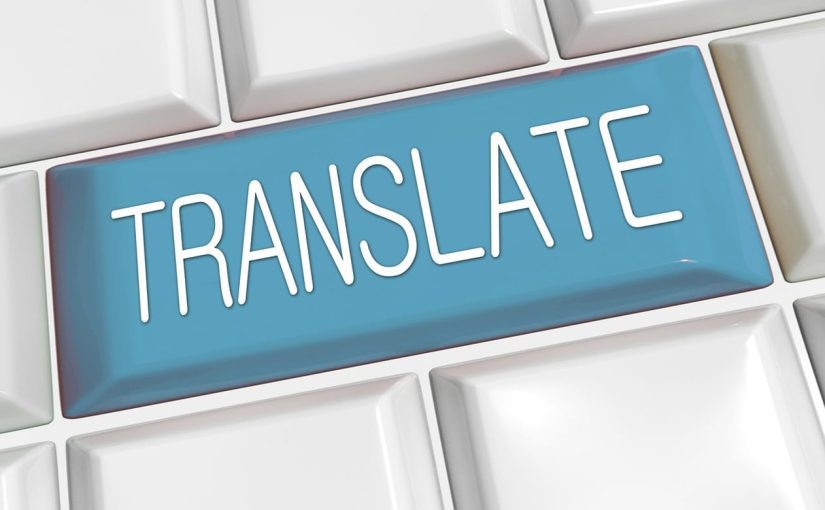
English and Chinese are the most widely spoken languages in the world right now. But they are merely two of over 7,000 English used by more than 8 billion human beings today. As globalization becomes a major trend in world politics, international travel and tourism are on the rise. As per one estimate, some 100,000 flights take off and land worldwide in a single day. These simple facts showcase the growing importance of free online translation tools worldwide.
Imagine going to Korea, visiting Thailand, or taking a cruise through the jungles of Kenya. You can talk to the natives via freely available translation tools or understand their languages with a mobile phone app. A person can use Google Translate or other tools to block text into multiple languages. But should you use these tools to translate immigration-related documents or your marriage certificate?
In this article, we’ll explore the hidden costs of relying too much on free translation online. You’ll learn why using these tools for all your translation needs might be a bad idea.
Why do People Use Free Online Translation Tools?
Before we go into the details of why experts discourage using online translation tools free, let’s review a few reasons why people use these tools. Suppose you have a brief document and you’re looking to translate English to French free. Would you use a free tool in any scenario? You might be encouraged to use tools like Google’s or Yandex’s translation services in the following situations:
- Convenience: These tools can translate anything in seconds, so users don’t have to spend a dime hiring professional translators.
- Affordability: Translating low-stakes documents via online tools is a very cost-effective way of getting things done.
- Accessibility: Users access these devices anywhere in the world and get on-demand translations whenever needed.
- Efficiency: These tools streamline the translation process when it comes to simple tasks (but still require quality control and reviewing).
- Inclusivity: You can use these tools to talk to people who may not be proficient in your language or don’t speak your language at all.
- Marketability: Businesses use free translation platforms to expand their market reach and attract new customers to foreign countries.
- Support: Free tools provide a starting point, with the understanding that the translations may need further editing and refinement.
In the next section, you’ll learn which tools you may use to translate something into a different dialect. All of the tools mentioned below are available free of cost and don’t require user registration.
5 Popular Free Translation Tools
How many free online translation tools can you name from memory alone? Google Translate may be the most commonly used one, with 610+ million daily users, but it’s far from being the only service provider in the market.
It seems appropriate to name some of the most popular free tools you could use to easily translate a box of text (caution: these tools shouldn’t be used for legal text translation):
- Bing Translator: As the name indicates, it’s a Microsoft-powered Google Translate alternative. But it offers less than a hundred languages.
- Reverso: It’s both an online platform and a mobile phone app, using AI to translate anything into any language free of cost.
- TranslatePress: It’s a translation widget that also comes as a WordPress plug-in. You can get a website translated with this tool.
- Zanata: Localization experts use this platform to translate not just content but even software. But it’s not recommended for lay users.
- ImTranslator: If you’re looking for a browser extension that could translate stuff for you, then use this tool on Chrome, Yandex, or Firefox.
In the next section, we’ll give a few key reasons why relying too much on these tools isn’t a very good idea and how professional translators can provide a better as well as cheaper service.
10 Reasons to Stop Using Free Online Translation Tools
It was 2022, and the Winter Olympics were taking place in Beijing, China. However, the officials were busy not enjoying the spectacle or mingling with foreign guests but fixing embarrassing translation mistakes that forced them to hang their heads in shameful silence.
There were mistranslated signs placed all over the capital that labeled disabled individuals as “deformed,” and wet-floor warnings told everyone to “slip carefully.” It’s just one example of why using free tools should be discouraged.
Another example is that of Afghan asylum workers, 40% of whom had problems with the immigration office due to AI-powered translation apps. After all, the accuracy rate of these free online translation tools varies from language to language.
A survey says that Google Translate translates content from English to Spanish correctly 94% of the time; however, the accuracy rate falls to a shameful 55% when it comes to translating English content into Armenian. So, avoid these tools because of:
Inaccuracies
Free translation online tools may be convenient, but they also suffer from inaccuracies. They may not understand how to utilize a specific word in the right context or choose the perfect word to reflect the gravity of the situation. Similarly, these tools often make errors when tackling idiomatic expressions and cultural nuances.
Poor Quality
Google Translate and other tools lack quality control. That’s because nobody at the other end is reviewing the translated document and ensuring it matches the tone/style of the original file. That’s why you should always hire a certified translator to get the job done right.
When working with translation agencies, you have the option to choose someone who specializes in a certain industry.
Data Security
These online platforms aren’t actually free and come with a hidden cost, i.e., lack of data security. They may store your information and share this sensitive data with third parties.
Certified translators provide you with 100% data security; they don’t divulge your information to anyone and ensure your private data stays private.
Legal Status
A machine-translated document doesn’t have any legal standing and might be rejected by immigration officials. They ask for documents that have been accurately translated by a certified professional who will also give you a translation accuracy certificate.
Suppose you want to remarry in Italy, then you need to show the Italian officials your US-issued divorce certificate translated by experienced professionals.
Liability Issues
You should never use free tools to translate legal documents. That’s because free tools can make minor mistakes that lead to huge liability issues. Imagine using an app to translate contracts, safety guidelines, or terms & conditions. Then, a single mistranslated clause ends up costing you millions on liability issues. So, always work with professional translators when tackling a doc of a sensitive nature.
Hallucinations
AI tools aren’t as sharp as we imagine them to be; they can sometimes see things and make stuff up. For instance, ChatGPT sometimes adds things that weren’t there in the original document. So, the result can include phrases or sentences imagined by AI. Similarly, AI translation tools are biased, experiencing gender stereotypes, something you wouldn’t find in human-translated documents.
Limited Options
As you have seen above, Google Translate offers hundreds of languages to choose from, but 7,000+ languages are spoken around the globe. Can Google Translate understand rare languages like Njerep or Valencian? How about Wolof and Bikol? Would online tools support Bhojpuri or Siraiki? Only certified translators support these languages and offer you a good-enough translation.
These are the reasons why the Department of Justice “strongly discourages” using machine/automatic translations for official purposes. As per an email chain from 2015, DoJ says: “If an agency decides to use software-assisted translation, it is important to have the translation reviewed by a qualified language professional before distributing it to ensure that the translation correctly communicates the message.”
When Should You Use Free Translation Tools?
So, should you stop using AI tools to translate stuff for good? Not at all! In some cases, you should rely on tools like Google Translate to convert simple passages into any language of your choosing, such as:
- Creating a survey in multiple languages
- Translating medical newsletters to bilingual patients
- Converting internal communication (e.g., memos) into other languages
- Rewriting articles in celebrity magazines or entertainment journals to reach a wider audience
- Helping foreign readers understand the overall substance of content available in a language they don’t speak
In the following short subsection, we’ll show you exactly why human translators are better suited for this job than AI-powered translators. Hopefully, it’ll convince you once and for all why even sophisticated tools can’t match the quality and accuracy brought to you by certified translators.
Benefits of Working with Professional Translators
The history is filled with famous translators and their inspiring stories – from St. Jerome and Hunayn b. Ishaq to Jorge Luis Borges and Edward George Seidensticker. Professional translators in the past saved ancient literature from getting lost in time and served as bridges between great civilizations.
Today, a professional translator can practically save lives by working with doctors and communicating a patient’s needs, especially elderly patients who only speak Spanish and visit English-speaking doctors. Some other reasons why you should work with professional translators include:
- Online tools don’t offer the same quality professionals bring to the table. Experienced, certified translators understand your target audience and brand message. That’s how they can translate your content in multiple ways to meet your clients’ expectations.
- Don’t forget that some translations require acute familiarity with certain terminologies as well as jargon, such as legal documents or medical paperwork. In this case, you should hire experts rather than relying on free translation tools online. It’ll be a great money saver in the long run.
- Professionals provide accurate translations because they better understand the context and can make better word choices. They’re also better aware of cultural nuances, so they avoid the sort of childish mistakes tools like Google Translate often make when rewriting a text into a different language.
Conclusion
You can see that free translation tools online are better suited for low-risk jobs. If you have to translate a legal document, then it’s a much safer (and cheaper in the long run) option to hire professionals. They understand the nuances of paraphrasing legal terms in the proper cultural and linguistic context. Working with credible services like TranslateSwift ensures a 100% acceptance rate with government agencies.
If you have a sensitive legal document, such as birth/marriage certificates, marriage contracts, or others, get a swift translation by placing an order online. Experienced, certified translators will work their magic on your important files and give you the required output with an accuracy certificate within 24 hours.
FAQs – Free Translation Online
Which translation tool is the best?
The most famous translation tool is Google Translate since it supports 130+ languages and provides instant translation. You can get free translation Portuguese to English done in a matter of seconds.
Are online translation tools safe?
These tools are always accessible and don’t cost a dime, but they aren’t safe. They don’t have the latest encryption protocols, so you shouldn’t upload sensitive information to Google Translate or anywhere else.
What type of text is suited for free translation?
You may use free tools to translate marketing text or communicate with clients. However, legal docs must always be translated via professional services because even the smallest nuances matter.










